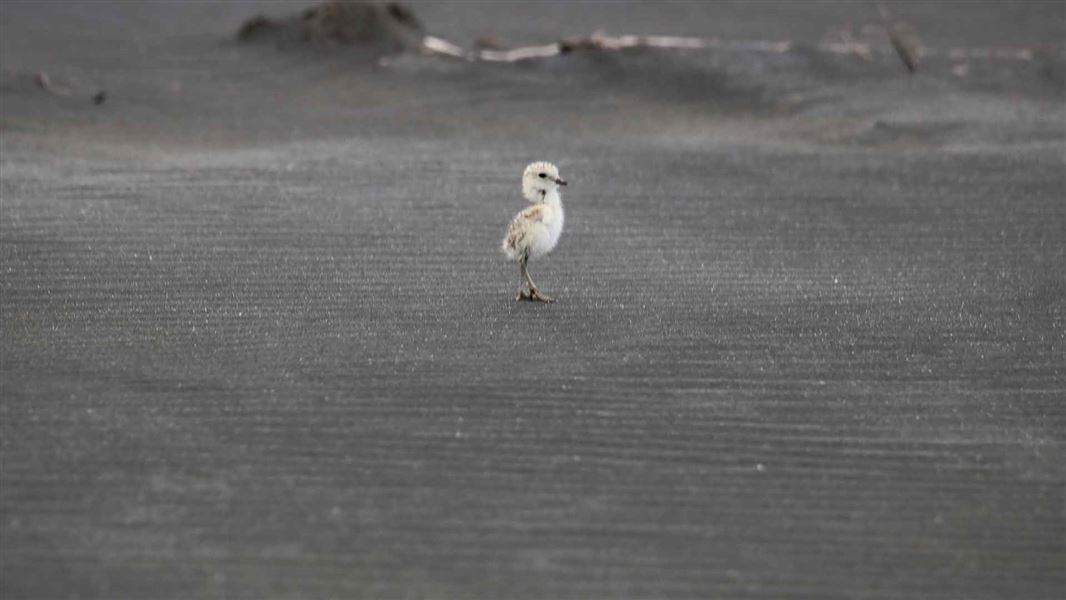Archived content: This media release was accurate on the date of publication.
Date: 12 November 2020
DOC Biodiversity Ranger Shelley Ogle says “Shorebird populations are vulnerable to disturbance, predation, weather, and other natural events, so it’s important for us to help in any way we can to ease the stress of raising chicks on our beaches over summer.
“The easiest way to help is to give them space and keep an eye on your dogs,” says Shelley.
“Most of our shorebirds are dedicated parents and will feign injury to lure predators – including people, dogs and vehicles – away from their nests or chicks, before flying back to safety when the threat is far enough away.
“This can get them into trouble in Tāmaki Makaurau as the beaches are so busy that the parents end up getting pulled away from their chicks to chase away people, leaving them vulnerable.”
Tāmaki Makaurau is encircled by three harbours and has 3,700 kilometres of coastline, all within easy reach of the many visitors who venture out to the coast in the summer.
Shelley says “When visiting the beach, watch your step! Many birds’ main form of defence is camouflage, and they can be anywhere from the soft sand above high tide t back into the dunes. The beach is the birds’ home and nest, so we need to be vigilant and aware when we head out.”
“Know where, when and especially if your dogs are allowed on the beach and if they need to be on a lead. Don’t let your dog chase birds – even our gulls are native, and it’s very stressful for all our shorebirds.”
If you find an injured bird, please call 0800 DOCHOT (0800 362 468)
Contact
For media enquiries contact:
Email: media@doc.govt.nz
